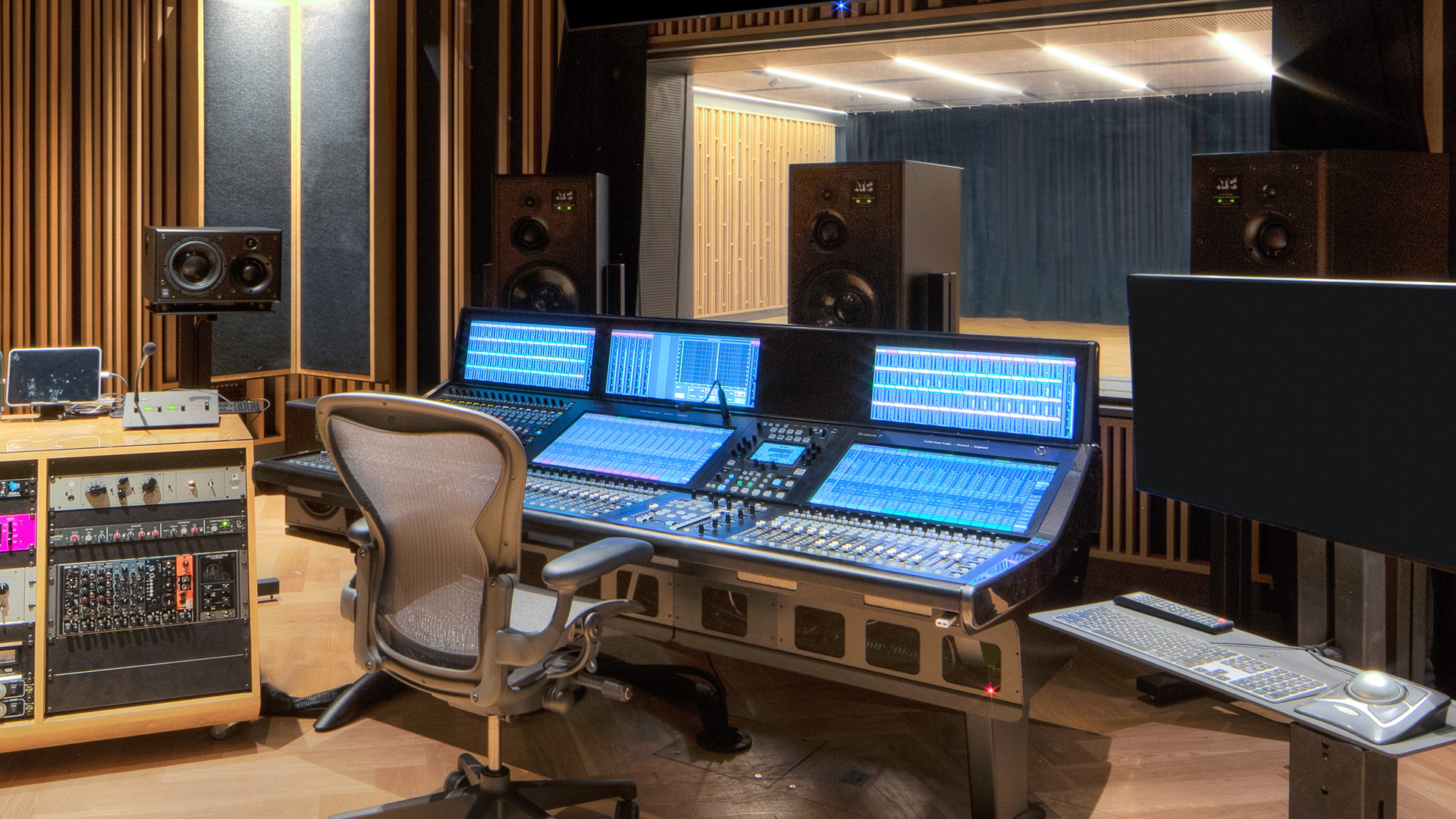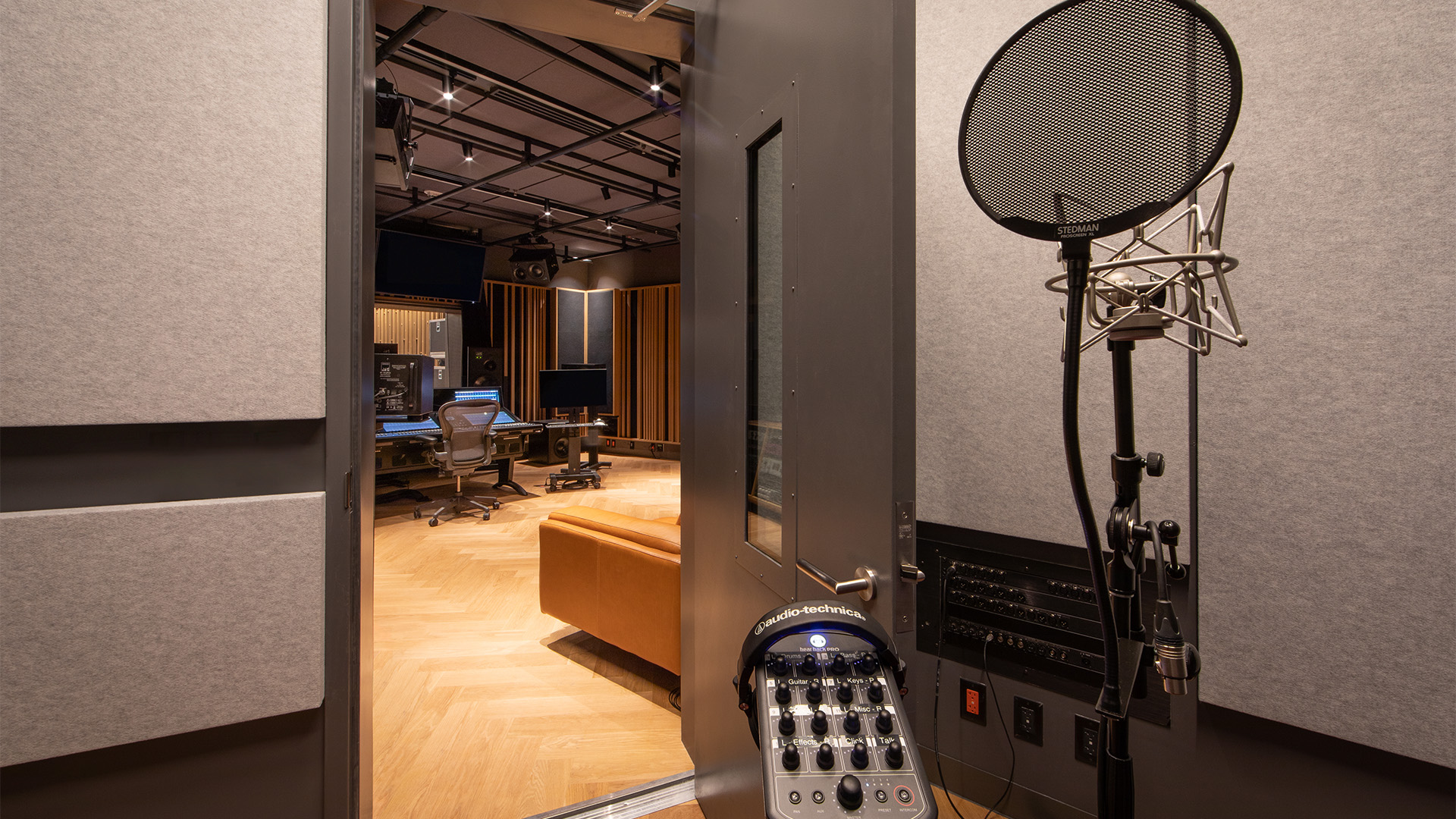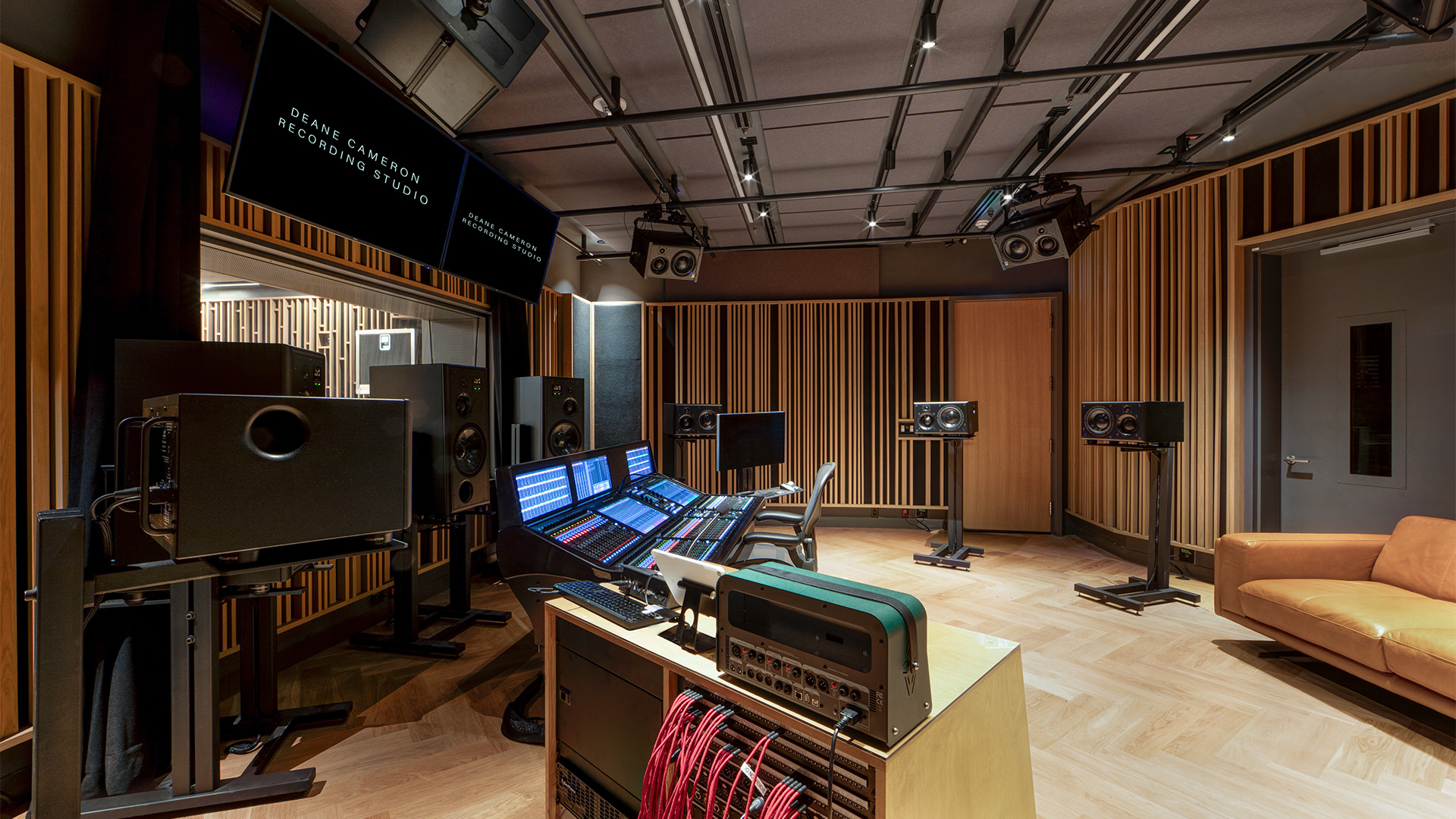
Massey Hall, a concert and lecture venue in Toronto. recently completed a massive revitalization project that included the construction of the adjoining seven-story Allied Music Centre. The new tower houses performance and production spaces for the historic 129-year-old hall, including the Deane Cameron Recording Studio, which opened in September 2023 and is equipped with a Solid State Logic System T S500 64-fader console.
The new seven-story building expands Massey Hall’s talent support services, offering rehearsal rooms, artist dressing rooms, and other amenities. New public spaces include a lobby, lounge, and new performance venues, including the 500-capacity TD Music Hall on the fourth floor and the 100-seat 6th Floor Theatre. “My role was to oversee all technical aspects of the entire project and to connect all of these spaces so that we could record audio and video in a high-quality way from anywhere at any time,” said Doug McKendrick, VP, production and technology at The Corporation of Massey Hall and Roy Thomson Hall, the not-for-profit charitable organization that operates the concert halls.
McKendrick and his staff had a short list of requirements for the mixing console to be installed in the main control room of the new seventh-floor studio complex, which is named in honor of Massey Hall’s late CEO, Deane Cameron. Primarily, the console needed to accommodate fast-paced events in Massey Hall as well as easily switching between live shows in the Allied Music Centre’s various venues and studio recording projects in the new production facility. “We needed it to be a digital console and we needed to be able to recall fast,” he said.

Veteran producer and engineer Eddie Kramer (Jimi Hendrix, David Bowie, The Rolling Stones, Led Zeppelin) who lives in the Toronto area, consulted on the studio project, and recommended the SSL System T production platform, McKendrick added. “Eddie has been a real friend of the project and a real mentor to me.”
“System T is so clever, so slick and so flexible—and it does sound bloody marvelous,” Kramer said. “It has a certain logic that anybody who has sat behind a console will get fairly quickly.”
Kramer became involved in the project while the studio was still being designed, he recalls, and pushed for the control room to be as large as possible. “I said, ‘You have to have Dolby Atmos, and if you’re going to do Dolby Atmos, you can’t have a small room.’ It was a joy working with Doug and the team. My hat's off to the whole tech team; they did a terrific job.”
[SCN Finally Goes Inside the Vegas Sphere ... and We Had a Ball]
McKendrick and the studio staff wanted to be able to work in Dolby Atmos on both recording and live projects in the new studio, which is outfitted with a 9.1.4 ATC monitor speaker system. “We're looking to push the envelope in audio as much as we can in all facets,” he said. System T’s native immersive audio bussing, panning and monitoring capabilities made it an ideal choice for the new room. “System T was the best choice. The console is really a great, great device.”
System T’s onboard processing offers almost everything an engineer needs for a session, McKendrick said. “The de-esser is amazing. All the reverbs and delays sound pristine and clean. The EQs are accurate. The Bus Compressor sounds like an SSL Bus Compressor—you can put it on anything and everything and it's really great. We've got a rack of outboard gear, but people aren't really touching it that much, especially for the live shows.
“The stem group setup is very powerful and easily routable. Plus, because System T can control Dante routing, you can just do everything right at the console. You don’t have to get up and go to a different room or go patch something or open a laptop.”

Shows at Massey Hall have generated a variety of live albums over the years, including a legendary 1953 Charlie Parker-Dizzy Gillespie concert, a 1971 performance by Neil Young, Rush’s 1976 gig, captured on All the World's a Stage, and Ronnie Hawkins’ 60th birthday celebration concert in 1995. Bringing concert recording capabilities into the modern era, Allied Music Centre is comprehensively wired with fiber, McKendrick said, with a 10-gig backbone extending throughout the entire facility and into Massey Hall. To record an event in Massey Hall, for example, staff move the 96-channel remote preamp system, which includes a selection of SSL’s Network I/O interfaces, to the stage. “They plug in, we carry Dante up to the System T and away we go,” he said.
For live shows, engineers have been taking advantage of System T’s snapshot capabilities, McKendrick also reported. One of the first events mixed through the System T was the Polaris Music Prize awards gala in September, which included performances from seven of the nominees. “The snapshots are intuitive so we're not finding that there's a giant learning curve for people coming in and using the console. In fact, we’ve been giving people an afternoon orientation on it and the next day they're in here mixing 90 or 100 tracks, live.
“The way that we've got snapshots set up to switch back and forth between playback and recording is the fastest that I've seen on any console. So, we're able to work very, very effectively with the System T.”
[ISE 2024: 3 Trends That Will Extend to InfoComm 2024]
The Deane Cameron Recording Studio’s main control room features a live space that doubles as a classroom and offers an iso booth. There are also some small writing rooms. “We're a not-for-profit corporation and we help develop Canadian talent,” McKendrick said. “That extends to engineers and producers. We want to put real tools at their disposal. That includes Atmos—it's a new thing to a lot of people, so we're providing local engineers with an opportunity to come and try it.
Toronto-based Martin van Dijk, Senior Consultant, Partner and Head of Design at Engineering Harmonics; acoustician Bob Essert, Founding Director of Sound Space Vision in the U.K.; and networking specialist Jamie Howieson, co-founder and CEO Network Vectors in Australia, all brought their expertise to the Massey Hall revitalization and Allied Music Centre design and integration projects, McKendrick reports. Audio equipment suppliers included Solotech, Studio Economik and Long & McQuade Professional.







